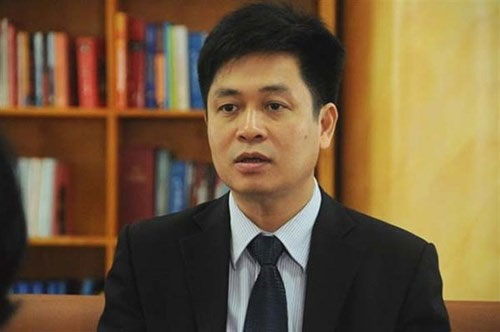VietNamNet Bridge – Dr. Nguyen Xuan Thanh, deputy director of the General Secondary Education Department in the Ministry of Education and Training, spoke to the newspaper Tuoi tre (Youth) on ways to detect and nurture young talents.

Nguyen Xuan Thanh
Vietnamese students attending international competitions have done very well, winning gold medals. In your opinion, what are the key factors for our students to win such high awards?
In previous years, our students participating in international competitions lacked practice, although their theoretical exercises were well done. This year, with lessons learned from previous years, our students have done quite well in practice exercises and earned high scores.
Would you please elaborate on the new strategy?
In the past few years, the Ministry of Education has poured more investment into schools for gifted students to achieve international standards. In my opinion, this is the right decision to foster our young talents.
Elite students who are candidates for international competitions have received special treatment. They are specially trained in both theory and practice, particularly in developing plans for experiments and analysing their test results.
In my opinion, this is the right approach to train students for future international competitions.
If in the past, we focused our efforts on transferring our knowledge to the students, now we have switched to give them prompts on how to solve the problems. Our ultimate objective is to encourage the students to come up with interesting and clever answers. In my opinion, this way has encouraged the students to give deep thought to the problems they have to solve.
In addition, we have also changed our way of selecting teachers to teach and train them. If in the past, we used to recruit old and experienced teachers, nowadays the teaching staff also include young teachers who are energetic and enthusiastic. During the course, we also arrange experience sharing between new students and former students who participated in international Olympic events.
It is compulsory for all students attending these special courses to learn English. It is a must that they be able to communicate fluently in English and have a good command of reading skills.
Some people have lamented that what we have achieved in international Olympic competitions does not reflect the real quality of our education. How do you respond?
In my opinion, the quality of our general education has been elevated to a higher level. This is a good foundation for us to promote our elite education of talented students. Of course, each education objective needs different approaches, but they are all geared towards the goal of developing learners’ capacity and creativity in problem solving in real life. However, when we talk about our students’ achievements at international Olympics, I think we should think about how to foster the talented students and to nurture their dreams.
Does the MOET have any plans to encourage winners of international Olympics to pursue their basic science study, not to go in other directions?
In the past few years, the MOET has introduced many programmes for winners of such competitions in the hopes that they would pursue further study in basic science, including offering overseas scholarships. However, in my opinion, we need policies to create a good learning and research environment. A case in point is the establishment of the Viet Nam Institute for Advanced Study in Mathematics (VIASM).
VIASM is the main institution implementing the National Programme for the Development of Mathematics from 2010 to 2020. This programme is responsible for encouraging young students to learn mathematics, improving the quality of teaching and learning mathematics at school and university, as well as disseminating scientific knowledge to the public.
So do we need a specific strategy for the development of physics and chemistry?
I can’t agree more. Physics, chemistry and biology are quite different from maths. They must have laboratories and field trials for students to practise. So they need more investment from the Government.
In its development strategy, the physics sector has adopted a plan to attract well-known Vietnamese and foreign physics experts, including young experts to work in the National Physics Institute.
In addition, the State should invest in physics teachers working in special schools nationwide.
VNS